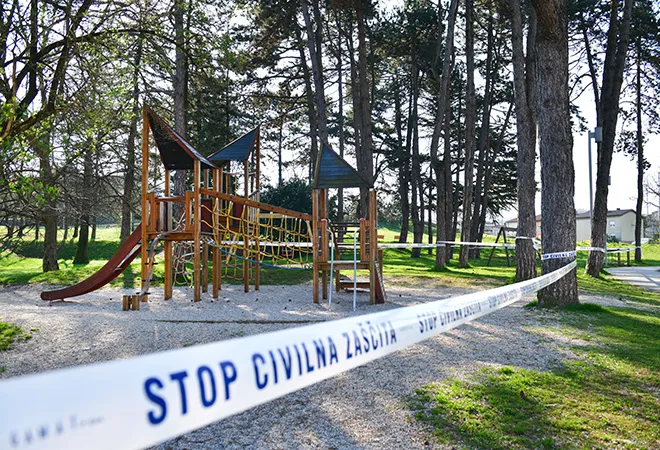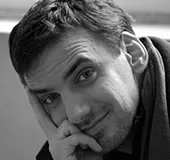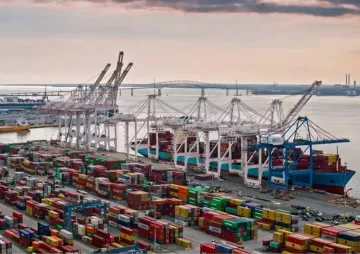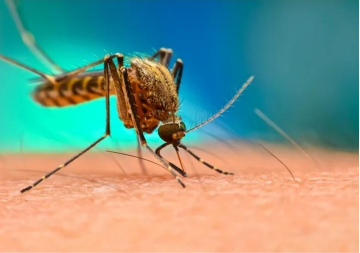
On 27 January 2020, three days before the first cases of Covid-19 were detected in neighbouring Italy, Marjan Šarec resigned as Slovenia’s prime minister and hoped to push for early elections, the fourth in a row since 2011. On 3 March, Janez Janša was sworn in as the country’s new prime minister, his third time at the post.
In between those two dates, a combination of geography, climate change and political flux upended the newly-minted prime minister’s plans and brought the country into an undeclared state of emergency. But, even as it tackles the health aspect of the crisis, the new government appears interested in demonstrations of power and introducing elements of a surveillance state.
An interregnum
In the 2018 parliamentary elections, Janša’s party was the largest but did not win a majority in the 90-member parliament. A hero of the war for Slovenian independence, he has amassed 30-years-worth of political controversies, shady finances, hate speech and occasional far-right rhetoric that made him simply too toxic for most other parties to work with. As a result, a minority government led by Šarec, a newcomer to the national stage, was instated. Beset with internal strife and dependant on a confidence-and-supply agreement with a hard-left party, Šarec’s government lasted only about 18 months.
When a prime minister resigns, the Slovenian constitution mandates a 30-day cooling-off period where all political parties can explore the possibility of forming an alternative government. The impending pandemic crisis in Italy and the political interregnum in Slovenia started converging. As fate would have it, winter school holidays were scheduled in Slovenia during those 30 days. For a nation of alpine skiers, this usually means a flock to one of several skiing resorts dotting the country. However, 2020 saw the least snowfall in a generation, an event that meteorologists agreed was directly linked to climate change.
Thus, instead of hitting the home slopes, many Slovenians hopped over the western border into ski resorts in Italy where snow was plentiful. As it turned out, so was Covid-19. And as school holidays ended, it became clear that Janša finally had the votes to form a majority government. He was sworn in as Prime Minister on 3 March, which started a 15-day countdown to form a cabinet and submit it to parliament for approval. In the meantime, the outgoing government continued in a caretaker role. And it was precisely during this time, when Janša was already sworn in as Prime Minister but Šarec’s government was still in place, that the Covid-19 outbreak really hit Slovenia.
The outgoing government, previously limiting itself to issuing alerts and cautions to various sub-systems and sections of society, was forced to shift gears. It invoked the Communicable Diseases Act, empowering the health minister to act swiftly. In no time, the soon-to-be-ex health minister Aleš Šabeder was ramping up measures daily. This culminated on 12 March 2020 when Šabeder officially declared a Covid-19 epidemic in Slovenia. A day later, Janša’s cabinet won parliamentary approval.
Hard measures
There was realisation early on that the new government will have to hit the ground running. This prompted a novel approach to political transition where incoming ministers were in fact shadowing their outgoing counterparts, even before they were officially confirmed by parliament. However, this short period of cross-party cooperation ended abruptly on 13 March when the new government took over for real and heavily criticised its predecessor for supposedly not taking the disease seriously enough.
In fact, the new administration tried to make a point of how serious the situation was by holding its first session immediately after it was sworn in, shortly after midnight on a Saturday, wearing surgical masks. Given that healthcare providers were experiencing a shortage in protective equipment (like elsewhere in Europe at the time), this proved to be a PR disaster. Over the past three weeks since taking over, the Janša government strategy to manage the Covid-19 crisis seems to be three-pronged:
First, there is the actual public health aspect. So far, Slovenia had managed to ‘flatten the curve,’ as the popular phrase goes. According to recent tweets by the new health minister, the country’s hospitalisation availability is at around 25% capacity. And while the number of confirmed cases is increasing and has surely broken the 1000-mark by the time this text is published, only about 12% of those patients are hospitalised (with a third of those being in ICU).
Second is the near-constant pressure on social behaviour patterns. This began as a measure of last resort with the previous government when they banned public gatherings of more than a 100 people, issued advice on social distancing, and ultimately closed schools and kindergartens, prompting a great many people and businesses to rapidly develop plans to work from home. The new government, however, ramped up these measures, banning all public gatherings soon after it took over and ultimately limiting the movement of people to their municipality of residence.
And third, the government is engaged in a massive legislative effort to limit the economic and social havoc the virus is almost sure to wreck on Slovenian society. This was met with broad public support. At the same time, however, the government is also looking to increase surveillance powers under the guise of fighting the disease.
Surveillance state?
A recent bill, for instance, included provisions that would allow the police to enter a place of residence without a warrant and, separately, to coerce those infected and quarantined into agreeing to be tracked by using geolocation features of their smartphones. Several institutions, including the Information Commissioner and Human Rights Ombudsman have strongly objected these provisions, with the former even calling them an introduction to a police state. These provisions were then largely removed from the final version of the bill.
Nevertheless, these episodes have raised suspicion among a portion of the public that apart from fighting the epidemic, the government is driven by other, more sinister ambitions, such as following in the footsteps of Hungarian leader Viktor Orban and his “illiberal democracy”.
This may not be that far a stretch as Janša and Orban have forged a political alliance years ago with the former taking the latter’s cue on many issues, most notably on migrants and the notion that Europe is somehow threatened by them. Orban has also propped up Janša’s party financially, mostly through financing media operations favouring the party and its ideology.
All of this combined with Janša’s continuing conflict with a large part the national media— which he alternately accuses of being incompetent, biased or part of the “deep state”—is rapidly creating a toxic atmosphere. The online harassment of journalists has increased and there were instances where media crews were attacked in the field as well.
After several weeks of self-isolation and social distancing, the population is getting increasingly anxious. In a country where political division runs deep, this can lead to all sorts of adverse social outcomes. But rather than trying to mitigate those as well, the current administration seems to be actively pursuing them. The government has made repeated attempts to invoke a clause in the Defence Act that would bestow policing powers upon the army units stationed near the southern border with Croatia (which happens to be the EU southern Schengen border as well). Parliament has rejected the move as unnecessary, but the government has said it will try again and again, ostensibly because the police are needed inland to control the ban on traveling within the country.
Equally worrying are attempts by the government to further limit the possibility of calling a referendum on certain types of legislation, thus limiting the ability of the voters to check the power of the ruling coalition. No wonder then that eyebrows were raised even further when the Prime Minister, seemingly casually, mentioned that the government had debated the possibility of taking over parliamentary authority, should parliament not be able to function on account of an infection.
While the constitution does indeed provide a clause for this type of a scenario (Article 108), the Prime Minister mentioning it while his government is trying to goad parliament into approving policing powers for the army and putting more and more curbs on public life, does anything but calm the situation.
To be sure, just as most of Europe, Slovenia is in the middle of a gargantuan effort to manage the Covid-19 pandemic and to mitigate its effects on society as much as possible. Despite the task being more than a little daunting, the combination of social and health measures seems to have been successful in blunting the initial blow. The economic countermeasures have also won public and political approval, even though the reality of the first package is not as advertised.
The question that persists, however, is whether the government will attempt to keep limits on personal freedoms for longer than absolutely necessary. Unfortunately, there is no definitive answer to that.
The views expressed above belong to the author(s). ORF research and analyses now available on Telegram! Click here to access our curated content — blogs, longforms and interviews.




 PREV
PREV


